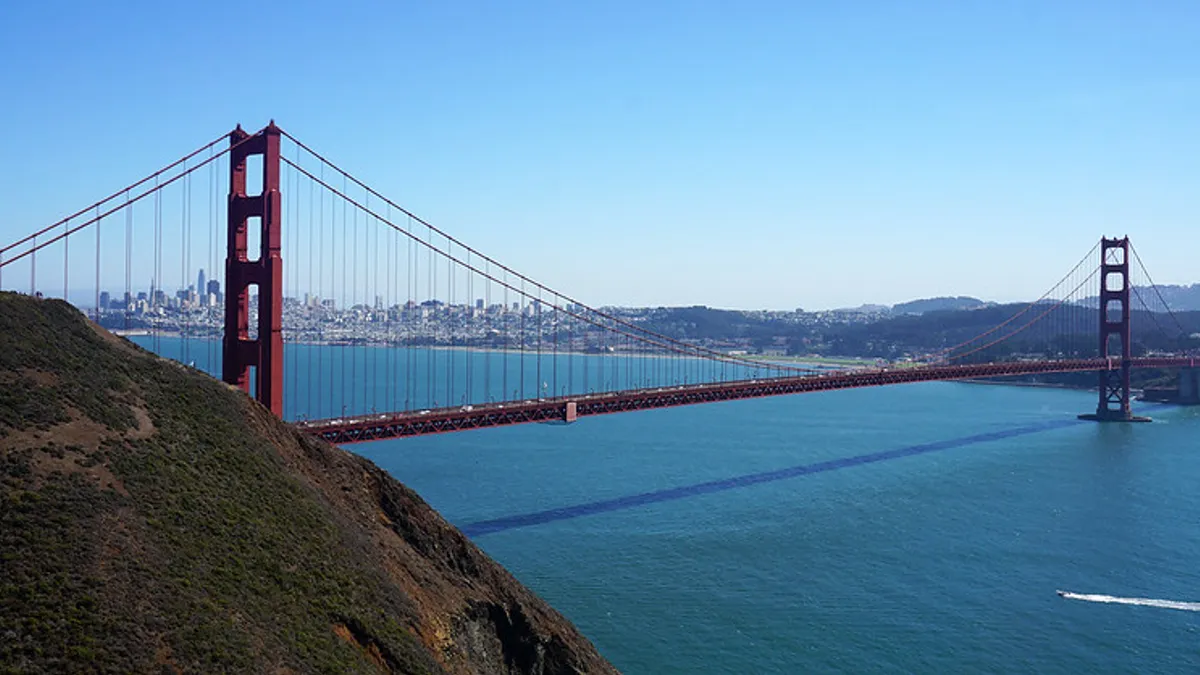UPDATE, Oct. 16, 2020: San Francisco Mayor London Breed and San Jose, CA Mayor Sam Liccardo said they "cannot support" a proposal to mandate employees of large Bay Area companies to work remotely three days a week, citing worries about the economic harm to cities’ downtowns.
In a joint statement Wednesday, Breed and Liccardo said they “remain concerned” about the mandate, and plan on working with staff from the Metropolitan Transportation Commission and others on "refining this strategy and considering alternatives that allow us to equitably meet our [greenhouse gas] reduction target and support the vitality of our downtowns."
The mayors’ statement came on the heels of a joint letter sent by 15 representatives of the Bay Area in the California Legislature. In it, elected officials raised concerns at the proposed mandate's "negative consequences” on the region, including on public transit revenue and the livelihoods of downtown businesses who rely on office workers, among others.
Dive Brief:
- A proposal in the San Francisco Bay Area would mandate that employees of large companies telecommute three days a week in a bid to curb greenhouse gas (GHG) emissions from driving. The Metropolitan Transportation Commission (MTC) advanced the plan last week as part of a long-term regional blueprint to create a "more affordable, connected, diverse, healthy and vibrant Bay Area for all."
- Under the proposal, MTC would mandate that large office-based employers with remote capabilities have at least 60% of their workforce working remotely every day. The organization said employers can do this through "any variety of alternative work options, such as compressed work weeks, flexible work schedules, or remote work policies."
- MTC said this proposal, which would affect major Bay Area employers including Apple, Facebook and Google, would build upon the "significant shift" to telecommuting that has happened during the coronavirus (COVID-19) pandemic. Board members voted 11-1 to advance the blueprint, with a final vote expected by year's end followed by an implementation period.
Dive Insight:
COVID-19 has forced millions of people to work remotely, leaving many office buildings vacant and resulting in the unintended outcome of lowered emissions as fewer people drove to work. Some experts were initially skeptical that cities could sustain emission reductions by keeping people at home, arguing the biggest impacts occur when industrial activity is reduced.
The telecommuting proposal received strong support on the commission. During a debate on the measure, Oakland, CA Mayor Libby Schaaf said there is "an opportunity to do things that could not have been done in the past," with more remote work possible due to advances in technology and the ability to do less tasks in person.
Other leaders warned of the mental toll that working remotely has taken on so many people. San Jose, CA Mayor Sam Liccardo warned that the "impacts — socially and psychologically — of this isolation will be with us for a generation and working from home is certainly not the ideal solution."
During the public comment period, Steven Buss, a software engineer for Google, said "no one is enjoying working from home," especially those in dense urban environments with little space. In written comments, Oakland, CA resident Joshua Davis also raised questions on whether the head taxes some companies pay to cities where they are located will be affected, a move that would further hamper local revenues.
There were also concerns about the impact of sustained remote work on downtowns. Commissioner Nick Josefowitz, who represents San Francisco on MTC, said the impacts could be enormous on transit, restaurants and other amenities that rely on downtown office workers.
"Our whole city relies on workers coming to downtown San Francisco and preventing them from coming even if they’re taking [Bay Area Rapid Transit (BART)], [Alameda-Contra Costa Transit District (AC Transit)], Muni or bike or walking, is going to do real harm," Josefowitz said.
The mandate will be up for further debate later this year. Josefowitz and others suggested the telecommuting requirements be amended to just target those who drive to work.












